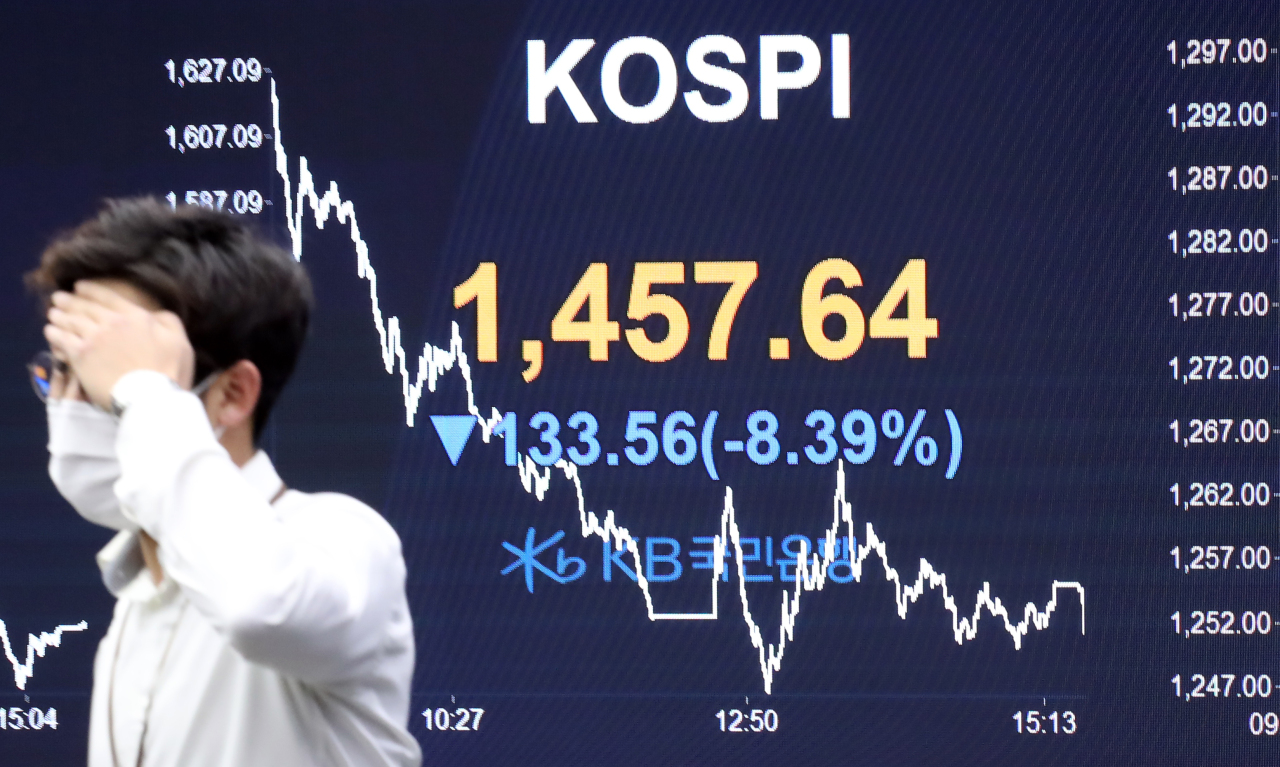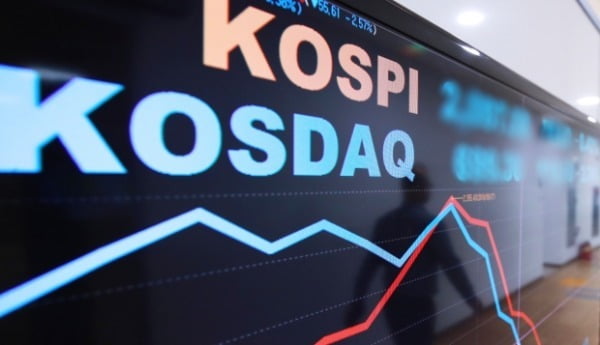[KOSPI] KOSPI Meaning, Calculation Principle, KOSPI Index, Difference Between KOSPI and KOSPI
1. KOSPI (Korea Composite Stock Price Index: Composite Stock Price Index)
The KOSPI is a survey of how much the prices of many stocks traded in Korea, or more precisely, the prices of all stocks traded on the stock market, have risen compared to the past.
[KOSPI] KOSPI Meaning, Calculation Principle, KOSPI Index, Difference Between KOSPI and KOSPI
2. KOSPI calculation principle
A stock index that measures how much the stock price has risen compared to the past. Countries around the world calculate stock indices in their own way, but KOSPI uses the total score method. For example, let's say that the sum of the prices of all stocks traded on the stock market on January 4, 1980 is 1 trillion. Then we take this as 100. And the KOSPI is calculated by adding up the prices of all stocks traded on the stock market today and calculating how much it has risen compared to the past.
If we add up the prices of all stocks traded on the stock market today, let's say 20 trillion. If the first set is taken as 100, the 20 is equal to 2000. Therefore, today's KOSPI is 2000. It is simple to interpret the KOSPI calculated in this way. If today's KOSPI is 2000, it means that the stock price has risen 20 times on average compared to 1980. And if the KOSPI was 1900, the stock price would have risen 19 times on average compared to 1980.
3. Meaning of KOSPI
Let's say our economy is doing well. If our economy is doing well, most of the companies in Korea will make a lot of money. And as the company earns a lot of money, the stock price rises. Therefore, the KOSPI, which is the sum of the prices of all stocks traded in the stock market, will also rise.
But what if the Korean economy is in trouble? As the Korean economy is faltering, most companies in Korea cannot make money. And as the company doesn't make enough money, the stock price also goes down. Therefore, the KOSPI, which is the sum of the stock prices of all companies traded in the stock market, will also fall.
Here we can see why the KOSPI is so important. This is because, through the KOSPI, you can see at a glance what the current state of the Korean economy is.
For example, if the KOSPI, which recorded 2000 yesterday, jumped to 2010 today, it is a story that the Korean economy has improved by 10, and if it has fallen to 1990, it is a story that the Korean economy has deteriorated by 10. To put it simply, the total score on the final exam has dropped from 2000 to 1990.
Of course, the KOSPI does not accurately reflect the strength of the Korean economy. Sometimes, they skyrocket and plummet regardless of the economy, but in the long run, they are said to most accurately reflect the strength of the Korean economy.

4. KOSPI (KOSPI)
The same is true of stock indices, which examine how much the stock price has risen compared to the past. Countries around the world calculate stock indices in their own way, but KOSPI uses the total score method.
For example, let's say that the sum of the prices of all stocks traded on the stock market on January 4, 1980 is 1 trillion. Then we take this as 100. And the KOSPI is calculated by adding up the prices of all stocks traded on the stock market today and calculating how much it has risen compared to the past.
If we add up the prices of all stocks traded on the stock market today, let's say 20 trillion. If the first set is taken as 100, the 20 is equal to 2000. Therefore, today's KOSPI is 2000.
It is simple to interpret the KOSPI calculated in this way. If today's KOSPI is 2000, it means that the stock price has risen 20 times on average compared to 1980. And if the KOSPI was 1900, the stock price would have risen 19 times on average compared to 1980.

5. KOSPI and economy
Let's say our economy is doing well. If our economy is doing well, most of the companies in Korea will make a lot of money. And as the company earns a lot of money, the stock price rises. Therefore, the KOSPI, which is the sum of the prices of all stocks traded in the stock market, will also rise.
But what if the Korean economy is in trouble? As the Korean economy is faltering, most companies in Korea cannot make money. And as the company doesn't make enough money, the stock price also goes down. Therefore, the KOSPI, which is the sum of the stock prices of all companies traded in the stock market, will also fall.
Here we can see why the KOSPI is so important. This is because, through the KOSPI, you can see at a glance what the current state of the Korean economy is. For example, if the KOSPI, which recorded 2000 yesterday, jumped to 2010 today, it is a story that the Korean economy has improved by 10, and if it has fallen to 1990, it is a story that the Korean economy has deteriorated by 10. To put it simply, the total score on the final exam has dropped from 2000 to 1990.
Of course, the KOSPI does not accurately reflect the strength of the Korean economy. Sometimes, they skyrocket and plummet regardless of the economy, but in the long run, they are said to most accurately reflect the strength of the Korean economy.

6. KOSDAQ KOSPI Difference
The biggest difference between the two is the size of the listed companies. The KOSPI, where large companies in the primary and secondary industries and heavy industry are listed, has a large sales volume, but it can be safe for investment purposes due to active inter-company transactions. However, the profit is bound to be less.
On the other hand, the overall size of the KOSDAQ is small compared to the KOSPI, but since companies focused on future industries such as SMEs and venture companies are listed, the rate of return may be high, but the risk of investment is high. Therefore, in order to invest, it is advisable to at least do your own research on the company you are investing in and invest when you are confident, rather than just listening to what others say.
'II. 경제학 (Economics) > 1- 주식 (Stock)' 카테고리의 다른 글
| [기업] 투자하기전 제대로 알고 하자! 한국 실전 투자를 위한 기업분석 사이트, 세부적으로 알려드립니다. (0) | 2022.09.12 |
|---|---|
| [Stock] A summary of the meaning of golden cross and dead cross (0) | 2022.07.19 |
| [Stock] Why stocks? (0) | 2022.07.19 |
| [코스피] 코스피 의미, 계산 원리, 코스피 지수, 코스닥과 코스피 차이 총정리 (0) | 2022.02.01 |
| [주식] 골든크로스, 데드크로스 의미 총정리 (0) | 2022.01.03 |




댓글